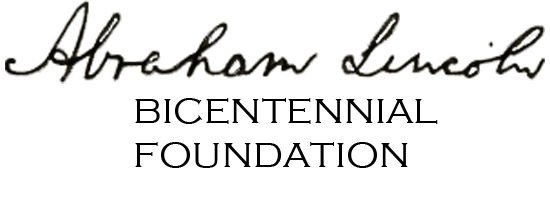 Abraham Lincoln has inspired the citizens and leaders of countries around the world to embrace the ideals of freedom, democracy, equality and opportunity for which he is known.
Abraham Lincoln has inspired the citizens and leaders of countries around the world to embrace the ideals of freedom, democracy, equality and opportunity for which he is known.
Surprisingly, though, there is no comprehensive study of Abraham Lincoln’s impact on the world.
The Abraham Lincoln Bicentennial Commission partnered with Oxford University in 2009 to fill that void.
Oxford University was the site of a global conference discussing Lincoln’s international significance and appeal. Scholars from around the world gathered at St. Catherine’s College on July 3–5, 2009. The conference, titled Global Lincoln: An International Conference, focused on four subjects:
- Lincoln, the United States and the World
- Lincoln the Emancipator and Liberator
- Lincoln the Nationalist Unifier and Modernizer
- Lincoln the Progressive and Democrat
Participants included:
- Eugenio Biagini, Cambridge University
- David Blight, Yale University
- Carolyn Boyd, University of California, Irvine
- Tao De-min, Kansai University
- Harold Holzer, Metropolitan Museum of Art, New York
- Kevin Kenny, Boston College
- Nicola Miller, University College London
- Kenneth O. Morgan, University of Oxford
- Peter Onuf, University of Virginia
- Norman Saul, University of Kansas
- Thomas Schwartz, Abraham Lincoln Presidential Library and Museum
- Jay Sexton, University of Oxford
- Adam I.P. Smith, University College London
- Arne Westad, London School of Economics
- Douglas Wilson, Knox College
Richard Carwardine, Rhodes Professor of American History at St Catherine’s College, Oxford moderated.
Lincoln, the United States and the World
Contributions by Professor Carwardine, Dr. Jay Sexton of Oxford, Odd Arne Westad of London School of Economics and Lincoln scholar Harold Holzer explored Lincoln’s understanding of the globe and US role in foreign affairs.
Dr. Sexton considered the ways in which American educators and statesmen attempted to project an image of the Lincoln across the globe, particularly during the Cold War and when formulating and articulating American foreign policy. Dr. Westad expanded on the Cold War and explored the ways in which peoples and states conceived of Lincoln and used his image for their own purposes. Finally, ALBC Commissioner Harold Holzer examined prints and statues of Lincoln’s image across the world.
Lincoln the Emancipator and Liberator
Part two of the conference focused on Lincoln’s international view as an emancipator and liberator. Professor Norman Saul of Kansas State delivered a Russian perspective of Lincoln and the president’s image in the context of Russia’s revolutionary changes during the birth of the soviet era. The discussion continued with a Latin America perspective from Professor Nicola Miller of the University College of London. Professor Miller examined how Lincoln served as a powerful symbol in Brazil and Cuba during those countries’s emancipation.
Finally, historian David Blight of Yale University revisited the perceptions of southerners during Lincoln’s era. Initially, many feared him as the embodiment of ‘Black Republicanism’ but after the war these same southerners came to recognize him as the charitable alternative to the regime of radical Republicans during Reconstruction.
Lincoln the Nationalist Unifier and Modernizer
Part three focused on 1865–1945 time period. Professor Eugenio Biagini of the University of Cambridge examined the perceptions of Lincoln in Germany and Italy as they underwent parallel processes of unification and economic growth. Other discussion topics included Lincoln’s influence in East Asia, India, South Africa and during the Spanish Civil War with the “Lincoln Brigades.“
Lincoln the Progressive and Democrat
The final part explored Lincoln’s legacy and reputation throughout Great Britain and Ireland. Adam I.P. Smith, University College London, discussed Lincoln’s legacy as it relates to Scotland and England.
A Wales perspective from Kenneth O. Morgan of University of Oxford addressed Lincoln’s reputation and influence in Wales during the later nineteenth and early twentieth centuries.
Professor Kevin Kenny of Boston College discussed Lincoln’s relationship with Ireland broadening the discussion to include the Irish in America. The main focus was Lincoln’s image in debates regarding Irish nationalism and Ireland’s place in the Union.
